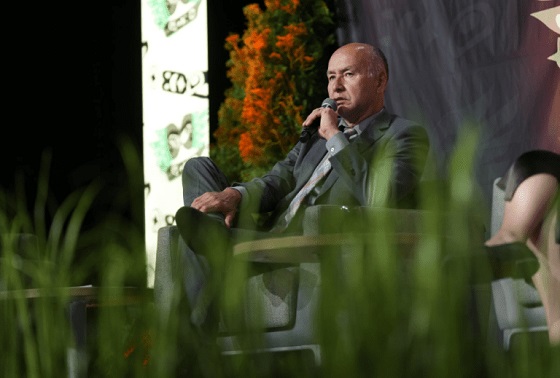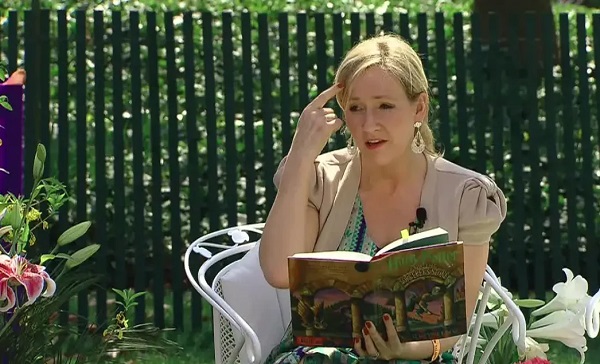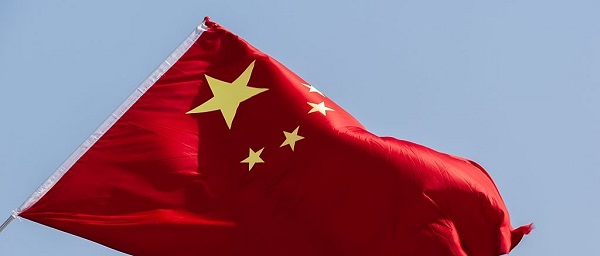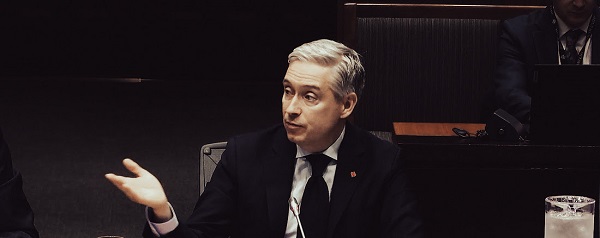Business
Elon Musk slams Trump’s ‘Big Beautiful Bill,’ calls for new political party

From LifeSiteNews
By Robert Jones
The Tesla CEO warned that Trump’s $5 trillion plan erases DOGE’s cost-cutting gains, while threatening to unseat lawmakers who vote for it.
Elon Musk has reignited his feud with President Donald Trump by denouncing his “Big Beautiful Bill” in a string of social media posts, warning that it would add $5 trillion to the national debt.
“I’m sorry, but I just can’t stand it anymore. This massive, outrageous, pork-filled Congressional spending bill is a disgusting abomination. Shame on those who voted for it: you know you did wrong. You know it,” Musk exclaimed in an X post last month.
I’m sorry, but I just can’t stand it anymore.
This massive, outrageous, pork-filled Congressional spending bill is a disgusting abomination.
Shame on those who voted for it: you know you did wrong. You know it.
— Elon Musk (@elonmusk) June 3, 2025
Musk renewed his criticism Monday after weeks of public silence, shaming lawmakers who support it while vowing to unseat Republicans who vote for it.
“They’ll lose their primary next year if it is the last thing I do on this Earth,” he posted on X, while adding that they “should hang their heads in shame.”
Every member of Congress who campaigned on reducing government spending and then immediately voted for the biggest debt increase in history should hang their head in shame!
And they will lose their primary next year if it is the last thing I do on this Earth.
— Elon Musk (@elonmusk) June 30, 2025
The Tesla and SpaceX CEO also threatened to publish images branding those lawmakers as “liars.”
Trump responded on Truth Social by accusing Musk of hypocrisy. “He may get more subsidy than any human being in history,” the president wrote. “Without subsidies, Elon would probably have to close up shop and head back home to South Africa… BIG MONEY TO BE SAVED!!!”
( @realDonaldTrump – Truth Social Post )
( Donald J. Trump – Jul 01, 2025, 12:44 AM ET )Elon Musk knew, long before he so strongly Endorsed me for President, that I was strongly against the EV Mandate. It is ridiculous, and was always a major part of my campaign. Electric cars… pic.twitter.com/VPadoTBoEt
— Donald J. Trump 🇺🇸 TRUTH POSTS (@TruthTrumpPosts) July 1, 2025
Musk responded by saying that even subsidies to his own companies should be cut.
Before and after the 2024 presidential election, Musk spoke out about government subsidies, including ones for electric vehicles, stating that Tesla would benefit if they were eliminated.
This latest exchange marks a new escalation in the long-running and often unpredictable relationship between the two figures. Musk contributed more than $250 million to Trump’s reelection campaign and was later appointed to lead the Department of Government Efficiency (DOGE), which oversaw the termination of more than 120,000 federal employees.
Musk has argued that Trump’s new bill wipes out DOGE’s savings and reveals a deeper structural problem. “We live in a one-party country – the PORKY PIG PARTY!!” he wrote, arguing that the legislation should be knows as the “DEBT SLAVERY bill” before calling for a new political party “that actually cares about the people.”
It is obvious with the insane spending of this bill, which increases the debt ceiling by a record FIVE TRILLION DOLLARS that we live in a one-party country – the PORKY PIG PARTY!!
Time for a new political party that actually cares about the people.
— Elon Musk (@elonmusk) June 30, 2025
In June, Musk deleted several inflammatory posts about the president, including one claiming that Trump was implicated in the Jeffrey Epstein files. He later acknowledged some of his comments “went too far.” Trump, in response, said the apology was “very nice.”
With the bill still under Senate review, the dispute underscores growing pressure on Trump from fiscal hardliners and tech-aligned conservatives – some of whom helped deliver his return to power. Cracks in the coalition may spell longer term problems for the Make America Great Again movement.
Business
The Grocery Greed Myth

Haultain’s Substack is a reader-supported publication.
To receive new posts and support our work, please consider becoming a free or paid subscriber.
Try it out.
The Justin Trudeau and Jagmeet Singh charges of “greedflation” collapses under scrutiny.
“It’s not okay that our biggest grocery stores are making record profits while Canadians are struggling to put food on the table.” —PM Justin Trudeau, September 13, 2023.
A couple of days after the above statement, the then-prime minister and his government continued a campaign to blame rising food prices on grocery retailers.
The line Justin Trudeau delivered in September 2023, triggered a week of political theatre. It also handed his innovation minister, François-Philippe Champagne, a ready-made role: defender of the common shopper against supposed corporate greed. The grocery price problem would be fixed by Thanksgiving that year. That was two years ago. Remember the promise?
But as Ian Madsen of the Frontier Centre for Public Policy has shown, the numbers tell a different story. Canada’s major grocers have not been posting “record profits.” They have been inching forward in a highly competitive, capital-intensive sector. Madsen’s analysis of industry profit margins shows this clearly.
Take Loblaw. Its EBITDA margin (earnings before interest, taxes, depreciation, and amortization) averaged 11.2 per cent over the three years ending 2024. That is up slightly from 10 per cent pre-COVID. Empire grew from 3.9 to 7.6 per cent. Metro went from 7.6 to 9.6. These are steady trends, not windfalls. As Madsen rightly points out, margins like these often reflect consolidation, automation, and long-term investment.
Meanwhile, inflation tells its own story. From March 2020 to March 2024, Canada’s money supply rose by 36 per cent. Consumer prices climbed about 20 per cent in the same window. That disparity suggests grocers helped absorb inflationary pressure rather than drive it. The Justin Trudeau and Jagmeet Singh charges of “greedflation” collapses under scrutiny.
Yet Ottawa pressed ahead with its chosen solution: the Grocery Code of Conduct. It was crafted in the wake of pandemic disruptions and billed as a tool for fairness. In practice, it is a voluntary framework with no enforcement and no teeth. The dispute resolution process will not function until 2026. Key terms remain undefined. Suppliers are told they can expect “reasonable substantiation” for sudden changes in demand. They are not told what that means. But food inflation remains.
This ambiguity helps no one. Large suppliers will continue to settle matters privately. Small ones, facing the threat of lost shelf space, may feel forced to absorb losses quietly. As Madsen observes, the Code is unlikely to change much for those it claims to protect.
What it does serve is a narrative. It lets the government appear responsive while avoiding accountability. It shifts attention away from the structural causes of price increases: central bank expansion, regulatory overload, and federal spending. Instead of owning the crisis, the state points to a scapegoat.
This method is not new. The Trudeau government, of which Carney’s is a continuation, has always shown a tendency to favour symbolism over substance. Its approach to identity politics follows the same pattern. Policies are announced with fanfare, dissent is painted as bigotry, and inconvenient facts are set aside.
The Grocery Code fits this model. It is not a policy grounded in need or economic logic. It is a ritual. It gives the illusion of action. It casts grocers as villains. It gives the impression to the uncaring public that the government is “providing solutions,” and that “it has their backs.” It flatters the state.
Madsen’s work cuts through that illusion. It reminds us that grocery margins are modest, inflation was monetary, and the public is being sold a story.
Canadians deserve better than fables, but they keep voting for the same folks. They don’t think to think that they deserve a government that governs within its limits; a government that accept its role in the crises it helped cause, and restores the conditions for genuine economic freedom. The Grocery Code is not a step in that direction. It was always a distraction, wrapped in a moral pose.
And like most moral poses in Ottawa, it leaves the facts behind.
Haultain’s Substack is a reader-supported publication.
To receive new posts and support our work, please consider becoming a free or paid subscriber.
Try it out.
Business
Tax filing announcement shows consultation was a sham

The Canadian Taxpayers Federation is criticizing Prime Minister Mark Carney for announcing that the government is expanding automatic tax filing within hours of the government’s consultation ending.
“There’s no way government bureaucrats pulled an all-nighter reading through thousands of submissions and survey responses before sending Carney out to make an announcement on automatic tax filing the next morning,” said Franco Terrazzano, CTF Federal Director. “Asking Canadians for their opinion and then ignoring them isn’t a good look for Carney, it makes it look like the government is holding sham consultations.”
The government of Canada announced consultations on automatic tax filing so Canadians could give the government “broad input through an online questionnaire.”
The government’s consultation ended on Thursday, Oct. 9, 2025.
Hours after the consultation ended, Carney today announced the government would expand automatic tax filing.
The CRA is already one of the largest arms of the federal government with 52,499 bureaucrats.
The CRA added 13,015 employees since 2016 – a 33 per cent increase. For comparison, America’s Internal Revenue Service has 90,516 bureaucrats. The CRA has one bureaucrat for every 800 Canadians. The IRS has one bureaucrat for every 3,800 Americans.
“The CRA can barely answer the phone, so Carney shouldn’t be giving those bureaucrats more busy work to do,” Terrazzano said. “The CRA is a bloated mess, and Carney should be cutting the cost of bureaucracy not scheming up ways to give the bureaucracy more power over taxpayers.”
The CRA only answered about 36 per cent of the 53.5 million calls it received between March 2016 and March 2017, according to a 2017 Auditor General report. When Canadians were able to get the CRA on the phone, call centre agents gave inaccurate information about 30 per cent of the time.
“The CRA acting as both tax collector and tax filer is a serious conflict of interest,” Terrazzano said. “Trusting the taxman to do your tax return is like trusting your dog to protect your burger.
“Carney should stop the CRA power grab and instead cut taxes and simplify the tax code.”
-

 Alberta2 days ago
Alberta2 days agoFact, fiction, and the pipeline that’s paying Canada’s rent
-

 Energy2 days ago
Energy2 days agoIn the halls of Parliament, Ellis Ross may be the most high-profile advocate of Indigenous-led development in Canada.
-

 Energy2 days ago
Energy2 days ago“It is intellectually dishonest not to acknowledge the … erosion of trust among global customers in Canada’s ability to deliver another oil pipeline.”
-

 Aristotle Foundation2 days ago
Aristotle Foundation2 days agoEfforts to halt Harry Potter event expose the absurdity of trans activism
-

 International23 hours ago
International23 hours agoTrump gets an honourable mention: Nobel winner dedicates peace prize to Trump
-

 Business15 hours ago
Business15 hours agoCarney government plans to muddy the fiscal waters in upcoming budget
-

 Business23 hours ago
Business23 hours agoTrump Warns Beijing Of ‘Countermeasures’ As China Tightens Grip On Critical Resources
-

 Bruce Dowbiggin2 days ago
Bruce Dowbiggin2 days agoCanada’s Humility Gene: Connor Skates But Truckers Get Buried







